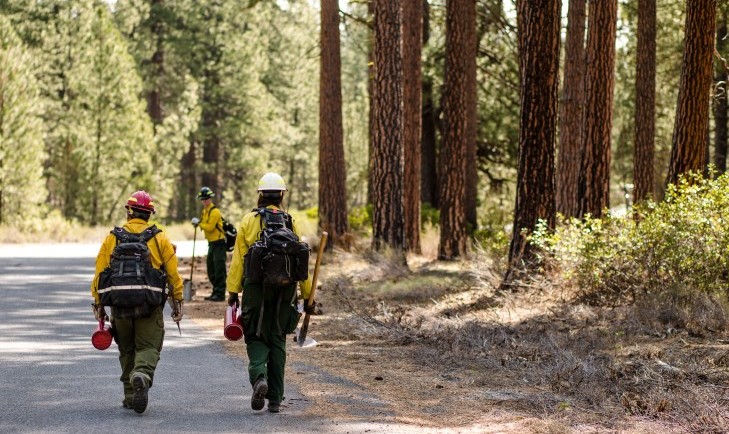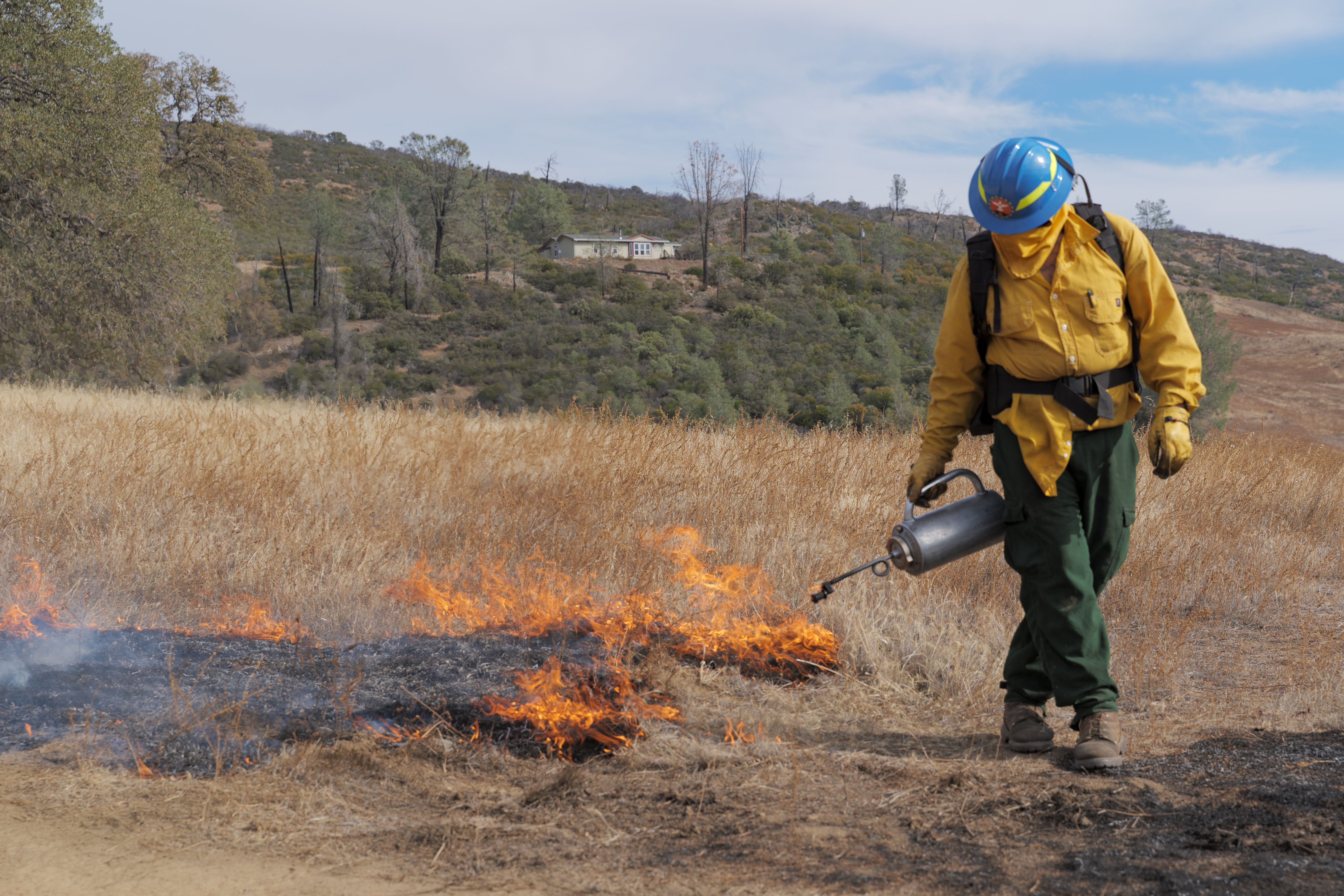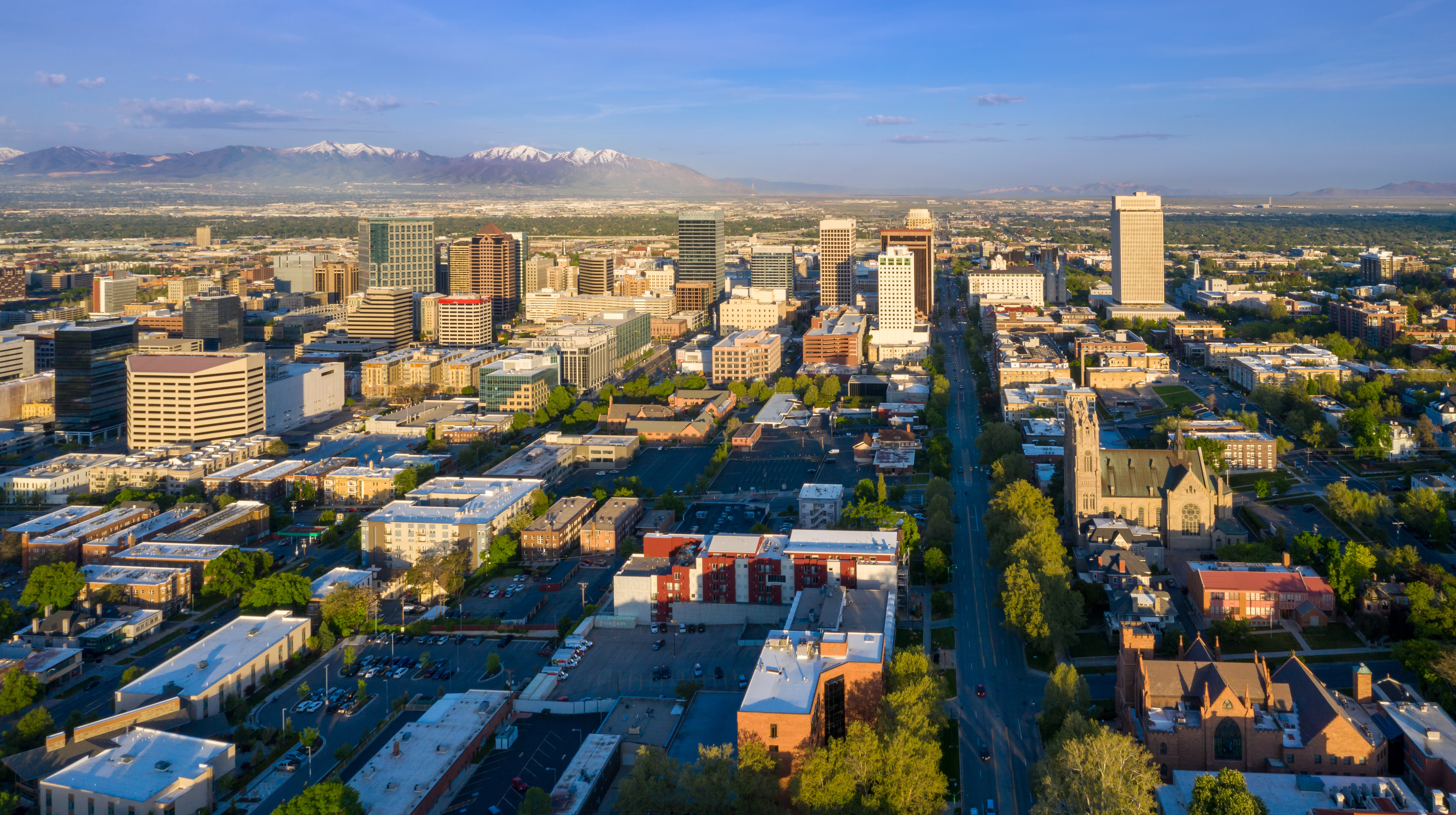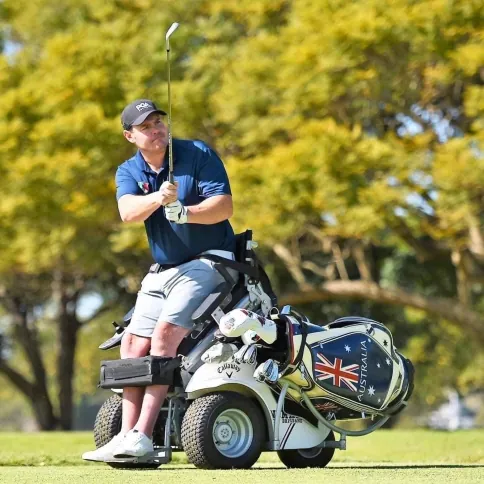07/10/25
Best of the West: Supporting wildland firefighter mental health; NM rural broadband; Salt Lake downtown; Rural ambulance service; Accessible golf; and lab-grown salmon

The Western Governors' Association keeps you updated on the latest news in the West. Here are the top stories for the week starting July 7, 2025. (Photos courtesy of Adobe Stock Images and the Stand Up and Play Foundation).
The summer wildfire season is kicking off across much of the West, with wildland firefighting crews deploying in many western states.
As crews battle fires and protect communities, increased attention is being paid to firefighters’ mental health, as the job has been shown to lead to adverse mental health outcomes for many in the field. Experts and current and former firefighters suggest that long hours, separation from family, unreliable housing, low pay, and exposure to traumatic situations can all contribute to poor mental health outcomes among the wildland firefighting community.
A 2019 study from University of Montana researcher Patricia O’Brien found that symptoms of anxiety and depression were two to three times higher among wildland firefighters, and the prevalence of PTSD was four times higher than the general population.
O’Brien’s study also found high levels of alcohol and substance use among wildland firefighters, and other studies have identified high rates of suicidal ideation and suicide.
In response to increased awareness of firefighters’ mental health challenges, a number of state and federal efforts have been launched to support those on the front lines of fire.
Last month, the Department of the Interior and the Forest Service announced a new program that provides firefighters with access to expanded mental health care. The program provides 16 free therapy sessions through a network of licensed providers across the country. It will be rolled out as part of the Federal Wildland Fire Health and Wellbeing Program, which aims to help the Interior Department and Forest Service better understand the physical and mental toll of fighting wildfires.
Other initiatives from public and private groups are working to support mental health care for firefighters, including the Wildland Firefighter Foundation, Grassroots Wildland Firefighters, and others.
Innovative solutions such as mobile health clinics for first responders are also cropping up in states like Texas, which can bring mental health care directly to first responders.
In addition to their strong support for firefighters, Governors across the West are pushing new mental health initiatives for all residents in their states.
In North Dakota, Governor Kelly Armstrong recently helped break ground on the expansion of the Altru Behavioral Health Center in Grand Forks, which will double the number of inpatient beds at the facility. Governor Armstrong recently signed legislation to provide nearly $13 million for the expansion.
In Colorado this week, Governor Jared Polis announced the launch of Colorado LIFTS (Linking Individuals and Families to Services). The program will provide access to a streamlined network of behavioral health services for Coloradans, regardless of insurance.
Read more about Western Governors’ policy on mental health care in WGA Policy Resolution 2025-05, Physical and Behavioral Health Care in Western States.
NM rural broadband: earlier this week, New Mexico Governor Michelle Lujan Grisham announced that three completed broadband projects have connected more than 500 rural locations to high-speed internet.
The projects spanned Cibola and McKinley counties to connect New Mexican families to reliable high-speed internet.
“Rural New Mexicans need reliable internet access and we’re delivering it,” said Governor Lujan Grisham. “These projects deliver real results—connecting families to telehealth, students to online learning, and businesses to new markets.”
Salt Lake downtown: Salt Lake City continues to grow rapidly, with its downtown area surging again after the COVID-19 pandemic upended urban life five years ago.
Last year, downtown Salt Lake saw its entertainment venues drive an 18.4% increase in ticket sales. In addition, workers are returning to downtown offices at a 10.5% higher rate, and the residential population downtown has grown by 27.5% since 2023.
addition, workers are returning to downtown offices at a 10.5% higher rate, and the residential population downtown has grown by 27.5% since 2023.
Salt Lake City also led the state in new housing development, adding 9,675 units between 2023 and 2024.
Watch WGA’s BRAND West housing workshop in Salt Lake City from this past December, which focused on mixed-use development, adaptive reuse, financing and funding mechanisms, and other important housing topics.
Rural ambulance service: in South Dakota, $20 million in grant funding has been disbursed to support local ambulance services and rural health needs.
The funds support programs like Telemedicine in Motion, which connects paramedics in ambulance vehicles.jpeg) to doctors who can help guide treatment before the patient reaches the hospital. Other recipients are using the funding for medical technician training and specialized equipment to bolster local services.
to doctors who can help guide treatment before the patient reaches the hospital. Other recipients are using the funding for medical technician training and specialized equipment to bolster local services.
At WGA’s recent Annual Meeting, Governors spoke with experts about ways to improve rural health care access and delivery. Read more about it here.
Making golf accessible: a municipal golf course in Oregon recently won a grant to purchase a specialized golf cart that allows people with disabilities to more easily play the sport. 
The cart allows the rider to move around the course with a joystick and pushes the player into a standing position once they’re ready to hit their ball.
Initiatives like this one are part of a push in Oregon to make activities like paddling, fishing, and hiking more accessible.
At WGA’s recent Annual Meeting, the Governors engaged with experts for a discussion on making the West’s unparalleled outdoor recreation accessible to users of all abilities. Read more about it here.
Lab-grown fish: a California-based company just became the first to receive FDA approval for its lab-grown salmon, which is now on the menu at a popular Portland, Oregon, restaurant.
The company, Wildtype, grows its salmon fillets from living Pacific salmon cells, mixed with the right temperature, pH, nutrients, and other conditions at its facility in San Francisco. Its fish is meant to be consumed raw or cured in dishes like sashimi or ceviche.